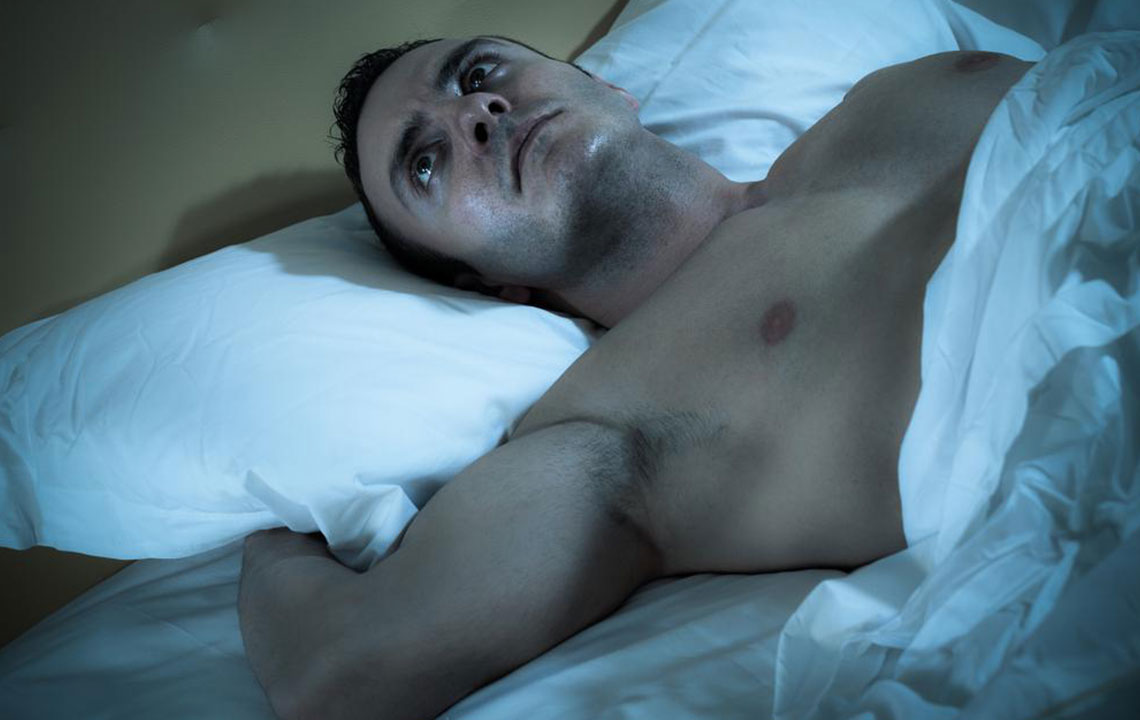Comprehensive Guide to Night Sweats: Causes, Symptoms, and When to Seek Medical Attention
Night sweats can indicate underlying health issues or result from hormonal or infectious causes. This comprehensive guide explores the main reasons for nocturnal hyperhidrosis, symptoms to watch for, and effective management strategies, emphasizing the importance of timely medical consultation. Learn how lifestyle changes and targeted treatments can help improve sleep quality and overall health.

Understanding the Main Causes of Night Sweats and When to Consult Your Healthcare Provider
Night sweating, scientifically known as nocturnal hyperhidrosis, is a condition where an individual experiences excessive sweating during sleep to the point that it soaks through sleepwear or bedding. While occasional sweating might be normal, persistent or severe night sweats can significantly interfere with sleep quality and daily life, and may also be a sign of underlying health issues that require medical attention. This comprehensive guide explores the various causes of night sweats, symptoms to watch out for, and practical tips on when to seek professional help to ensure your health and well-being.
Common Causes of Night Sweats
Cancer: Certain types of cancers, especially lymphomas such as Hodgkin's and Non-Hodgkin's lymphoma, as well as leukemia, are frequently associated with night sweats. These sweating episodes are often accompanied by other symptoms like unexplained weight loss, fever, fatigue, or night fever. The mechanism involves cytokine production, which affects the body's temperature regulation system. Early detection is crucial for better treatment outcomes.
Medications: Some pharmaceutical drugs can induce night sweating as a side effect. Notably, antidepressants, medications for diabetes like insulin or oral agents, hormone therapy drugs, and certain pain medicines may disturb the body's natural sweating regulation. If you notice increased sweating after starting a new medication, consult your healthcare provider about possible alternatives.
Infections: Bacterial, viral, or parasitic infections can cause night sweats, often accompanied by fever, chills, and malaise. Conditions such as tuberculosis, HIV/AIDS, endocarditis, or abscesses in various parts of the body tend to produce systemic responses leading to sweating episodes at night. Prompt diagnosis and management are essential to prevent complicating health issues.
Neurological Conditions: Disorders affecting the nervous system, especially those involving autonomic dysregulation, can lead to night sweats. For example, strokes, multiple sclerosis, autonomic neuropathy, or trauma-related post-traumatic syndromes may disrupt normal sweating patterns, leading to excessive nighttime perspiration.
Idiopathic Hyperhidrosis: This refers to excessive sweating with no identifiable cause despite comprehensive evaluation. It may involve localized areas like palms, soles, or underarms, but in some cases can extend to the entire body, including during sleep.
Hormonal Imbalances: Fluctuations in hormones, especially thyroid hormones in hyperthyroidism or the carcinoid syndrome, can trigger episodes of excessive sweating, including during sleep. Women approaching menopause often experience night sweats due to hormonal changes affecting body temperature regulation.
When Should You Seek Medical Advice?
While occasional night sweats are often harmless, persistent or severe episodes may indicate serious underlying health problems. Consulting your healthcare provider is recommended if you experience any of the following:
Repeated night sweats that occur regularly and disrupt sleep patterns
Associated symptoms such as unexplained weight loss, persistent fever, or severe cough
Night sweats in individuals with pre-existing medical conditions like HIV/AIDS, cancer, or autoimmune diseases, especially if symptoms worsen or change
Signs of infection that do not resolve quickly or are accompanied by other systemic symptoms
Possible Diagnostic Approaches and Treatment Options
Diagnosing the underlying cause of night sweats generally involves a combination of medical history assessment, physical examinations, and diagnostic tests such as blood work, imaging studies, or biopsies. Treatment varies based on the diagnosed condition:
For Menopause-Related Night Sweats: Hormonal therapy, including estrogen or progesterone, may be prescribed to balance hormone fluctuations.
Infections: Appropriate antibiotics, antivirals, or antiparasitic medications are administered based on the infectious agent identified.
Cancer Treatment: Managing night sweats often involves addressing the primary cancer through chemotherapy, radiation, or surgery, alongside supportive care for symptoms.
Medications: Adjusting or substituting medications that cause sweating as a side effect can help alleviate symptoms.
Lifestyle Modifications: Simple measures such as wearing loose, breathable clothing, using a fan or air conditioning, lowering room temperature, and avoiding spicy foods or caffeine can mitigate mild symptoms.
Practical Tips to Manage Night Sweats
In addition to medical interventions, lifestyle strategies can be effective in reducing night sweats:
Maintain a cool, well-ventilated sleeping environment
Opt for lightweight, moisture-wicking bedding and sleepwear
Avoid consuming hot drinks or spicy foods close to bedtime
Practice stress-reducing techniques like deep breathing or meditation
Stay hydrated, but avoid excessive fluid intake before bedtime
Conclusion
Night sweats are a common yet complex condition that can be caused by a variety of factors ranging from benign hormonal fluctuations to serious medical illnesses. Recognizing the symptoms, understanding potential causes, and knowing when to seek medical advice are essential steps in managing this condition effectively. Early diagnosis and tailored treatment plans not only improve sleep quality but also contribute to overall health and well-being. If you experience persistent or severe night sweats, consult a healthcare professional promptly to identify and address the root cause.





